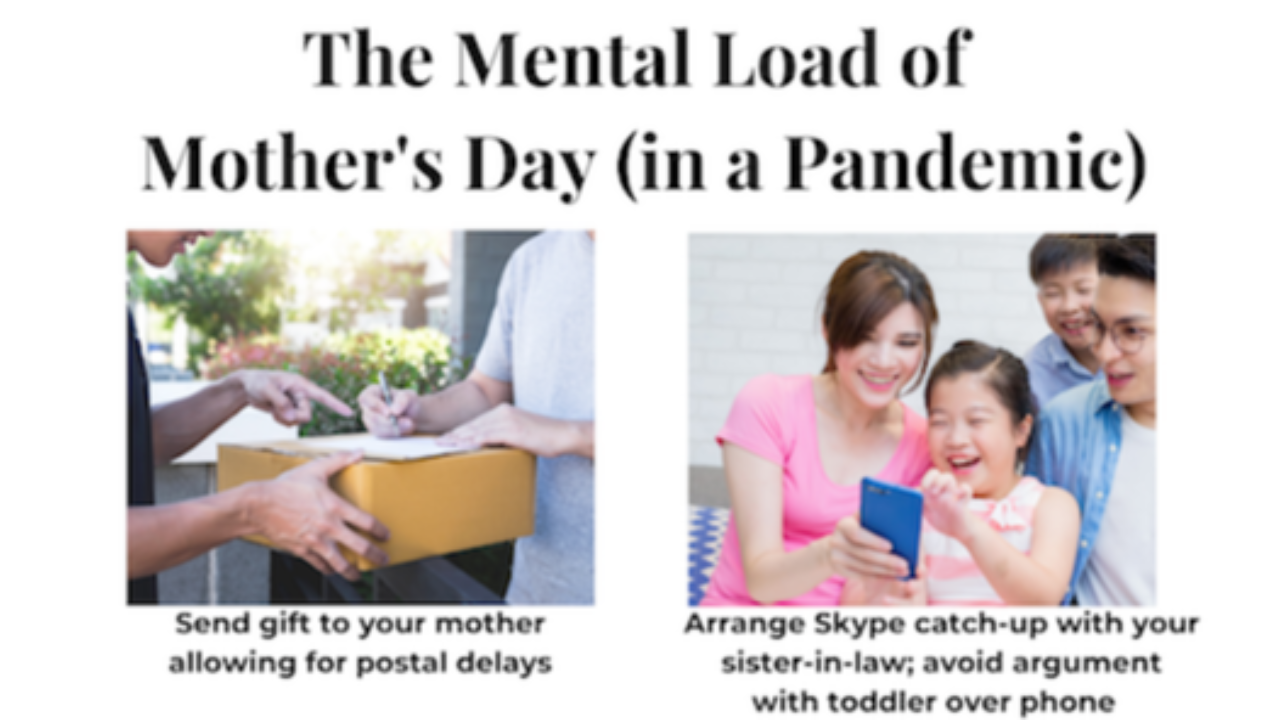Mental Load Equality Amongst Coronavirus Chaos

Making upheaval an opportunity for positive change
Hands up if your children previously had a day-by-day schedule e-mailed to multiple family members, paid caregivers and anyone else who may be involved in your children’s lives? When I returned to full-time shift-work earlier this year, my husband and I took turns to email the weekly schedule of our daughter’s care arrangements to both sets of grandparents, two aunties, a close friend and our neighbour who all chipped in to cover the myriad of daycare drop offs/pick ups, evening shifts and nights on-call.
Now, with coronavirus, our daughter is no longer being looked after by the grandparents or friends. An upside of coronavirus has been that she now has a full-time place at our local childcare, and my hours have reverted to being more regular! My partner and I are privileged to both be still working, and we are grateful that our local kindy is still open.
With a new emphasis on social isolation, though, our “village” shrunk to our “bubble”.
Our daughter’s routine is now much simpler and leaner – and no longer needs anything more than a quick message or two each week to her aunty.
Most kids around the world have had bigger changes. Many parents are grappling with the closure of schools or childcare centres at the same time as care from grandparents, friends, neighbours or other family is no longer available. Most of these parents will also have had massive changes in their work. Many have been let go or stood down. Those still working are often trying to do it from home. All those finely honed schedules with multiple, competing afterschool activities have had to be thrown out the window.
But the good news is that you don’t have to be the sole keeper of the new routines.
How many times have you done something – the shopping, the tidying, paying the bills, organising the playdates – because you have the info? You have the BPAY numbers saved in your account, you have Theo’s Mum’s mobile number, you know where everything goes, it will just be quicker if you do it yourself…
But a month ago, no one had the password to the e-learning portal or knew how to set up two monitors on the kitchen table as a home workstation. In the last blog, we touched on some reasons why you might be more likely to take on the mental load in this pandemic. But this is probably the biggest single change in a household’s mental load that you could imagine. And that’s something that can be capitalised on to start sharing the mental load more easily.
You’re going to need to have a conversation with your partner about the new tasks and the new routine, so it’s a good opportunity to start dividing the mental load from the beginning.
Remember to divide not delegate.
You can work out how this suits you. Your partner could be in charge of English homework and you take all science questions. Or with younger kids, you take all homework questions and he manages the mechanics of online learning. You plan activities for Saturdays and he plans them for Sundays. The important thing is that each of you take full responsibility for your set tasks; no longer is one person keeping everything in their head and just delegating and reminding the other person to do them.
And a side note: often, kids learn their father’s occupation earlier than their mother’s. If you’re working from home it’s a great opportunity for them to learn what you do at work and how important it is. Even if you’re not working, or not working from home, you’re probably going to be spending a lot more time alone with your kids. You can show them that household physical and mental labour is gender neutral. If they’re old enough you can start including them in your planning conversations and giving them responsibility over some areas of their lives.
Let us know how you go!
Want to learn more about sharing the mental load?
Join our e-mail community to receive sporadic tips, tricks, stories and inspiration about sharing the mental load.
We promise not to spam and will always keep your details private.




